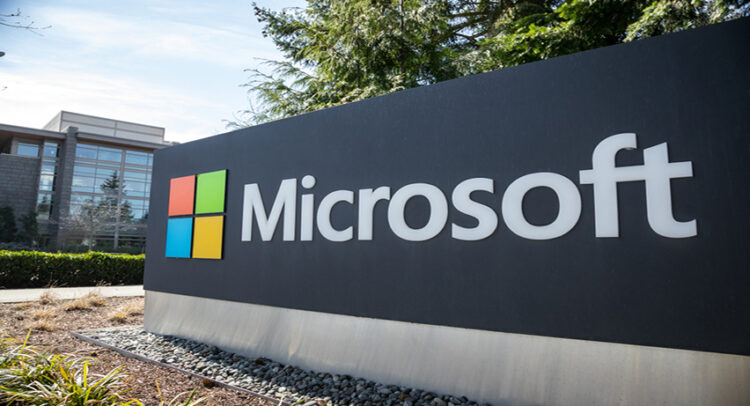Microsoft (NASDAQ:MSFT) was an early beneficiary of the AI trend, driven by its backing and close ties with ChatGPT creator OpenAI. Recently, however, questions have arisen about how the AI story is set to unfold from here.
Stay Ahead of the Market:
- Discover outperforming stocks and invest smarter with Top Smart Score Stocks
- Filter, analyze, and streamline your search for investment opportunities using Tipranks' Stock Screener
During its September quarter (FQ1) earnings call, Microsoft guided Azure revenue growth for the December quarter (FQ2) to fall below expectations (at 31-32%). However, citing the upcoming availability of new data center capacity, the company reaffirmed its outlook for accelerated growth in the March and June quarters. Microsoft attributed the delays to third-party cloud infrastructure partners, specifically leased capacity from Oracle and CoreWeave, and stressed that 2H Azure growth would rely more on Microsoft’s own infrastructure, over which they have control.
However, UBS analyst Karl Keirstead, who ranks in the top 3% of Wall Street pros, thinks it is difficult to tell how things will pan out on this issue.
“The challenge that we and most investors have is that every cloud infrastructure provider is running into industry-wide capacity constraints and it is very tough to gain confidence into exactly when capacity is indeed getting turned on,” Keirstead went on to say. “In our judgement, Microsoft investors are growing weary of continued go-live delays and capacity-induced pressure on cloud infra revenues (look no further than Microsoft’s share price reaction post its 1Q/ Sept print and Oracle’s share price reaction post its 2Q/Nov print).”
That said, as per Microsoft’s comments, the 5-star analyst believes the company is well-positioned for the latter part of the fiscal year (March/June quarters). Azure’s acceleration is likely to be “back-end loaded” as new capacity comes online in the second half. While CEO Satya Nadella’s mention of a potential “AI winter” raises some concern, Keirstead believes Microsoft operates at the “highest quality end of the customer/workload spectrum,” and sees no clear signs of overbuilding among smaller GPU cloud providers.
“In our view,” the analyst summed up, “the fundamental outlook in 2025 remains solid – Azure growth should get a lift as supply constraints ease and as AI inference demand takes off on the back of enterprises rolling out their initial AI applications.”
Accordingly, Keirstead reaffirms a Buy rating on MSFT shares and raises the price target from $500 to $525. The new figure implies a 20% gain and signals the potential for new all-time highs in 2025. (To watch Keirstead’s track record, click here)
It’s clear that Wall Street generally agrees with the UBS take on Microsoft. The stock has 29 recent analyst reviews, which include 27 Buys and just 2 Holds, giving the stock its Strong Buy consensus rating. Going by the $499.19 average price target, a year from now, shares will be changing hands for a 14% premium. (See MSFT stock forecast)
To find good ideas for stocks trading at attractive valuations, visit TipRanks’ Best Stocks to Buy, a tool that unites all of TipRanks’ equity insights.
Disclaimer: The opinions expressed in this article are solely those of the featured analyst. The content is intended to be used for informational purposes only. It is very important to do your own analysis before making any investment.










